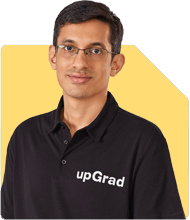Mayank Kumar | Answer |Ask -Follow
Education Expert - Answered on Dec 19, 2023

My son is just starting FYJC, Science. He is interested in Chemistry. What are the options he can pursue after class 12? Could you also throw some light on PharmD? What are the career opportunities after studying PharmD?
You may like to see similar questions and answers below
Mayank Chandel |2562 Answers |Ask -Follow
IIT-JEE, NEET-UG, SAT, CLAT, CA, CS Exam Expert - Answered on Oct 08, 2023
Mayank Chandel |2562 Answers |Ask -Follow
IIT-JEE, NEET-UG, SAT, CLAT, CA, CS Exam Expert - Answered on Mar 23, 2024
Sushil Sukhwani | Answer |Ask -Follow
Study Abroad Expert - Answered on Apr 25, 2024
Dr Nagarajan J S K |2575 Answers |Ask -Follow
NEET, Medical, Pharmacy Careers - Answered on Aug 10, 2024
Dr Nagarajan J S K |2575 Answers |Ask -Follow
NEET, Medical, Pharmacy Careers - Answered on Jun 21, 2025
Dr Dipankar Dutta |1837 Answers |Ask -Follow
Tech Careers and Skill Development Expert - Answered on Dec 05, 2025
Dr Shyam Jamalabad |108 Answers |Ask -Follow
Dentist - Answered on Dec 05, 2025
Dr Shyam Jamalabad |108 Answers |Ask -Follow
Dentist - Answered on Dec 05, 2025
Dr Shyam Jamalabad |108 Answers |Ask -Follow
Dentist - Answered on Dec 05, 2025
Dr Dipankar Dutta |1837 Answers |Ask -Follow
Tech Careers and Skill Development Expert - Answered on Dec 05, 2025
Ulhas Joshi |280 Answers |Ask -Follow
Mutual Fund Expert - Answered on Dec 05, 2025
Dr Dipankar Dutta |1837 Answers |Ask -Follow
Tech Careers and Skill Development Expert - Answered on Dec 04, 2025
Ravi Mittal |676 Answers |Ask -Follow
Dating, Relationships Expert - Answered on Dec 04, 2025
Anu Krishna |1745 Answers |Ask -Follow
Relationships Expert, Mind Coach - Answered on Dec 04, 2025
Anu Krishna |1745 Answers |Ask -Follow
Relationships Expert, Mind Coach - Answered on Dec 04, 2025





























